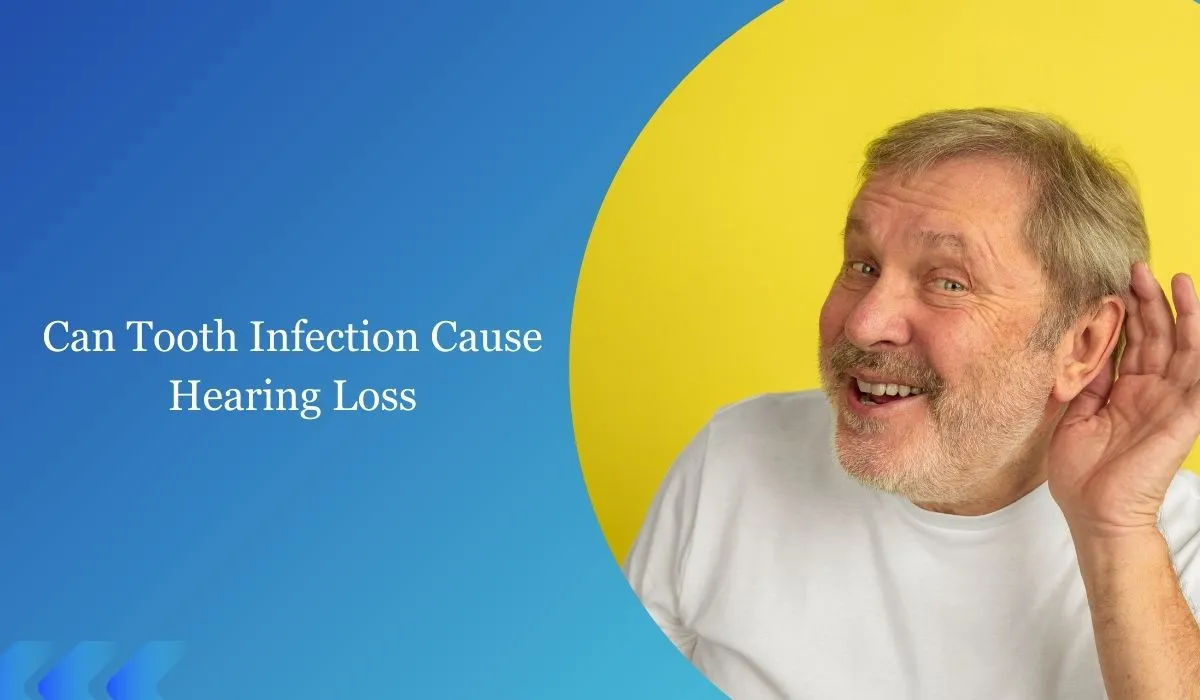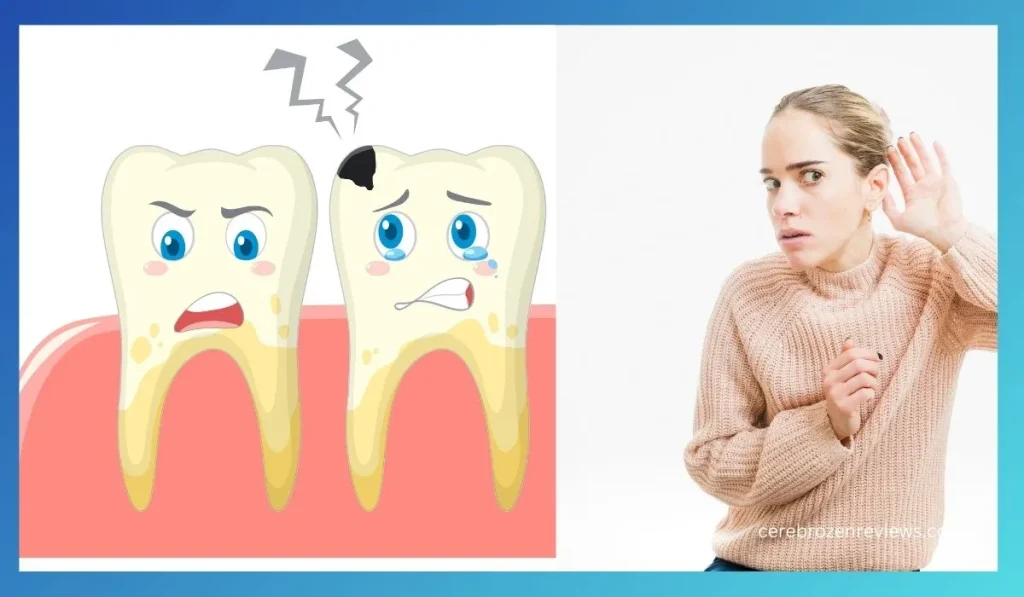Can Tooth Infection Cause Hearing Loss? Exploring the Potential Connection
Tooth infections can potentially spread to the middle ear through the Eustachian tube, causing inflammation, fluid buildup, and even nerve damage – all potential contributors to hearing loss. Protect your hearing by promptly treating dental issues and maintaining excellent oral hygiene.

Disclaimer: Our recommendations are sincere, driven by the products’ benefits. When you buy through our links, we may earn a commission, backing our testing and development at no extra cost to you.
When you think about the potential consequences of a tooth infection, hearing loss may not be the first thing that comes to mind. However, there is a surprising connection between these two seemingly unrelated conditions that has garnered attention in recent years. The question “Can tooth infection cause hearing loss?” is an intriguing one, and in this article, we’ll explore the potential mechanisms behind this link.
Understanding Tooth Infections

A tooth infection, also known as a dental abscess, occurs when bacteria invade the inner layers of the tooth, typically due to untreated tooth decay, cracked or chipped teeth, or gum disease. As the infection progresses, it can lead to the formation of a pocket of pus within the tooth or surrounding tissues, causing pain, swelling, and other concerning symptoms. If left untreated, a tooth infection can potentially have far-reaching consequences, including the risk of hearing loss.
The Anatomy of the Ear and Its Proximity to Teeth
To understand how a tooth infection could potentially affect hearing, it’s essential to recognize the proximity of the ear to the teeth and oral cavity. The ear is divided into three main parts: the outer ear, middle ear, and inner ear. The middle ear, which houses the ossicles (tiny bones responsible for transmitting sound vibrations), is connected to the oral cavity via the Eustachian tube.
The Eustachian Tube: A Potential Pathway for Infection
The Eustachian tube is a narrow passageway that connects the middle ear to the back of the throat, behind the nasal cavity. Its primary function is to regulate air pressure in the middle ear and facilitate the drainage of mucus and other fluids. In cases of tooth infections, particularly those affecting the upper molars or wisdom teeth, the infection can potentially spread through the Eustachian tube, leading to inflammation and potential hearing impairment.
Can Tooth Infection Cause Hearing Loss? Exploring the Mechanisms
There are several potential mechanisms by which a tooth infection could contribute to hearing loss:
- Inflammation and Fluid Buildup When a tooth infection spreads to the middle ear via the Eustachian tube, it can cause inflammation and fluid buildup within the middle ear cavity. This can interfere with the proper transmission of sound vibrations, leading to conductive hearing loss, which affects the ability to hear soft sounds or those at certain frequencies.
- Ossicle Immobilization In severe cases, the inflammation caused by the tooth infection can lead to the immobilization of the ossicles, the tiny bones responsible for transmitting sound vibrations from the eardrum to the inner ear. This can significantly impair the conduction of sound waves, resulting in hearing loss.
- Nerve Damage Some tooth infections can spread to the surrounding tissues and potentially affect the nerves responsible for hearing, such as the facial nerve (which controls the muscles involved in hearing) or the auditory nerve (which transmits sound signals from the inner ear to the brain). Damage to these nerves can lead to sensorineural hearing loss, which affects the ability to perceive sound accurately.
Risk Factors and Symptoms of Tooth Infection Causing Hearing Loss
While the connection between tooth infections and hearing loss is not universally experienced, certain individuals may be at higher risk. These include:
- People with untreated or recurring tooth infections, especially those involving the upper molars or wisdom teeth.
- Individuals with compromised immune systems or underlying medical conditions that make them more susceptible to infections.
- Those with a history of ear infections or disorders affecting the Eustachian tube.
Symptoms that may indicate a potential link between a tooth infection and hearing loss include:
- Ear pain or discomfort
- Muffled or distorted hearing
- Ringing or buzzing sounds in the affected ear (tinnitus)
- Dizziness or vertigo
- Facial pain or swelling
Seeking Professional Treatment for Tooth Infection and Hearing Loss
If you suspect that a tooth infection may be affecting your hearing, it’s crucial to seek prompt medical attention. Your dentist can evaluate the severity of the infection and provide appropriate treatment, such as root canal therapy or tooth extraction, to address the underlying issue. Additionally, consulting an ear, nose, and throat (ENT) specialist or an audiologist can help assess the extent of any potential hearing loss and determine the appropriate course of action.
Preventing Tooth Infections and Protecting Your Hearing
While the link between tooth infections and hearing loss is not definitive, taking proactive steps to maintain good oral hygiene and addressing dental issues promptly can help reduce the risk of potential complications. Here are some preventive measures to consider:
- Regular Dental Checkups and Cleanings
- Proper Oral Hygiene
- Prompt Treatment of Dental Problems
- Maintaining Overall Health
CEREBROZEN is a natural supplement that has gained attention for its potential to support brain health, including auditory function. This supplement contains a blend of ingredients, such as ginkgo biloba, vinpocetine, and huperzine A, which are believed to improve circulation, promote neuronal health, and enhance cognitive abilities. While more research is needed to fully understand its effects on hearing, incorporating CEREBROZEN into your daily routine may provide added support for your auditory system.
Related: All You Need To Know About Tinnitus Retraining Therapy
Conclusion
The potential connection between tooth infections and hearing loss is a concerning one that highlights the importance of maintaining good oral health. By being aware of the potential risks, recognizing the symptoms, and seeking prompt medical attention, individuals can take proactive steps to address tooth infections and protect their hearing health. Remember, prevention and early intervention are key to minimizing the likelihood of tooth infections and their potential consequences, including the risk of hearing loss.
Randi Leigh Carter
Randi Leigh Carter is a licensed audiologist with over 15 years of experience in treating hearing health issues. She holds a Doctor of Audiology (Au.D.) degree from the University of Miami and is certified by the American Speech-Language-Hearing Association (ASHA). As the founder and director of Clarity Hearing Solutions, a leading audiology practice in South Florida, Dr. Carter specializes in the assessment, diagnosis, and treatment of a wide range of hearing disorders, from age-related hearing loss to tinnitus and auditory processing issues. She is passionate about helping her patients improve their quality of life through personalized hearing care. In addition to her clinical work, Dr. Carter is a respected researcher and speaker. She has published numerous articles in peer-reviewed journals on topics such as the impact of hearing loss on cognitive function and the use of advanced hearing technologies. She is also a frequent presenter at national and international audiology conferences, sharing her expertise and insights with her colleagues. Beyond her professional achievements, Dr. Carter is deeply committed to community outreach and education. She volunteers with local organizations to provide free hearing screenings and hearing aid assistance to underserved populations. She also serves on the board of directors for the Florida Academy of Audiology, where she works to advance the field and advocate for better hearing healthcare policies.
